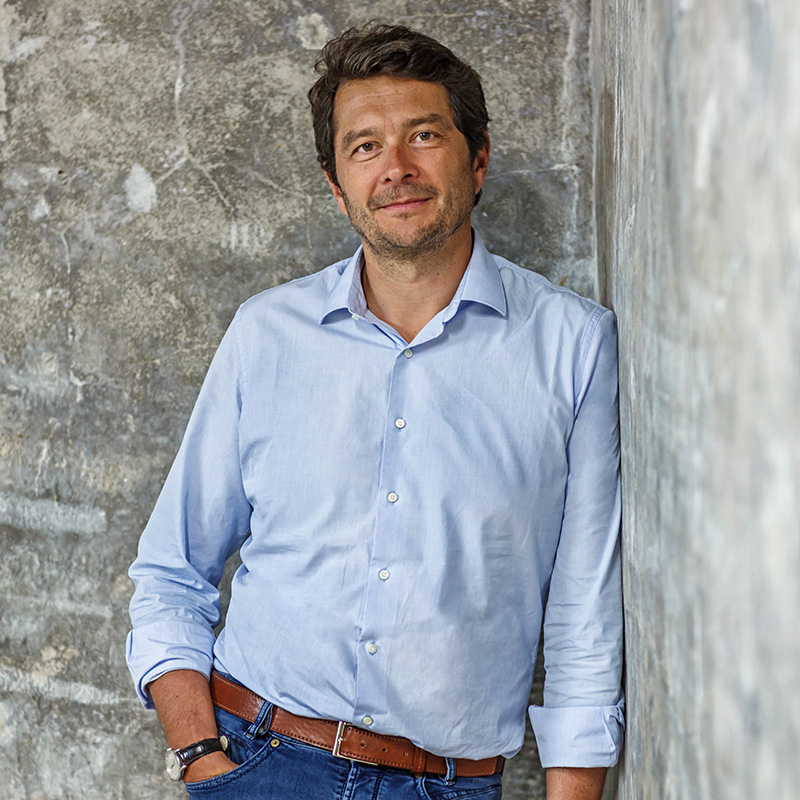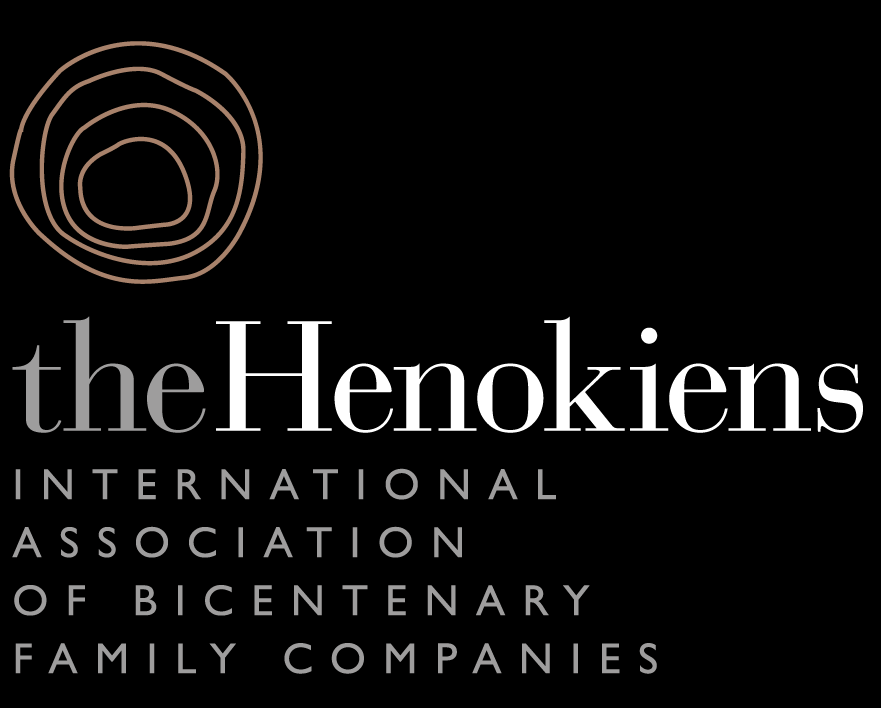Olivier Passot
)
Revol is a family company created in 1768 by Madeleine and Pierre Revol, both artisan potters
M. Olivier PASSOT, you are one of the French members of the Henokiens Association. Could you introduce yourself to our readers?
> Olivier PASSOT: I was born in Lyon in 1971. I am the eldest of 4. I went to business school in Lyon, after which I worked in transportation, and then in international textiles. I joined Revol in 1999 to oversee the American market, and then I took over for my father Bertrand as head of the company in June of 2007.
Could you introduce us to your company and its work?
> O.P.: Revol is a family company created in 1768 by Madeleine and Pierre Revol, both artisan potters, who married and thus founded the first Revol factory in Ponsas, in the north of the Drôme department, 4km from Saint-Uze where Revol’s current factory has been since 1800.Let me remind you that porcelain, a nonporous product, vitrified, extremely resistant, and fired at very high temperatures – between 1300 and 1400° C – is the noblest material in the ceramic family.
Throughout the 19th century, the company has primarily made household products, particularly bowls, dishes and soup pots, but also a lot of bottles intended either for alcohol or for storing consumable liquids: oil, milk, water, etc.
Little by little, manufacturing processes evolved towards more sophisticated products, particularly gold-decorated presents, while at the same time, the business began to make objects for the advertising market during the first half of the 20th century.
Beginning in the 1980s, we have resolutely evolved towards hotel and hospitality market, forming partnerships with renowned Chefs, and offering innovative culinary solutions to this rapidly developing market.
The beginning of the 2000s marks Revol’s entry into the world of retail and department stores.
Revol’s ambition since then has been of becoming a table and cookware brand both for professionals and for the regular consumer.
Today the company employs 200 workers on one site, makes 55% of its revenue in the hotel and hospitality trade, and exports 72% of its production in 84 countries.
Could you tell us a few words about your major more or less long-term projects?
> OP. : We have many projects, but one of them is particularly close to our hearts:
The construction of a new kiln measuring 46m long, allowing for a 30 to 40% increase in firing volume, which will lead to an equivalent increase in our revenue within 5 to 10 years.
How can you explain your company’s longevity?
> OP.: In my opinion, our longevity can be explained by a strong attachment, by both managers and workers, to our history and our expertise, as well as an even stronger desire to transmit and continue this exceptional history. But the desire to transmit alone is not enough, an entrepreneurial drive is fundamental. And really, I think that for the Revols and their descendants, which we are, it is almost genetic!

Are the traditional values that make the strength of your company also an asset when it comes to innovation?
> OP.: The strong values that guide the business certainly have roots in our unique history, all the while making sure to evolve with the times. These values are undoubtedly: respect for others; humility; attentiveness; work; and the certainty that nothing is for granted. These values form the basis of a company that is, above all, a human adventure.
These values quite naturally push the leader and his teams to innovate, create, develop, and question regularly.
What are, according to you, the most important dangers that your company must face to maintain its independence?
> OP.: For a company director, the traps are numerous. The temptation to go too fast, to heed the siren song of a rapid but ultimately ephemeral success, these are very concrete traps that we must face.
And then, running a business means always facing important decisions and making all kinds of choices. It boils down to making the best possible decisions while knowing that you will also make some bad ones.
In order to make decisions with as much clairvoyance as possible, it is important to take the necessary distance, and have the right team. Believing that one can always manage and decide alone is also, in my opinion, a big mistake.
Is the new generation already part of the business?
> OP.: No, the next generation is not yet in the company. They are children who must first take advantage of their youth to define themselves, and next make choices that above all are right for them. If one day one of them has the capacities and the desire to join the company, then I will be very happy.
Do you have any advice for those wishing to create their own family business?
> OP.: I don’t have any particular message for those wishing to create their own company. Each person, each trade, is different. To each his own path; but if you feel drawn to creating a business, and after having strongly structured your project, you must jump in without hesitation, for it is the most beautiful professional adventure that one can have. And one shouldn’t forget that all of the large and beautiful companies that surround us were once small.

